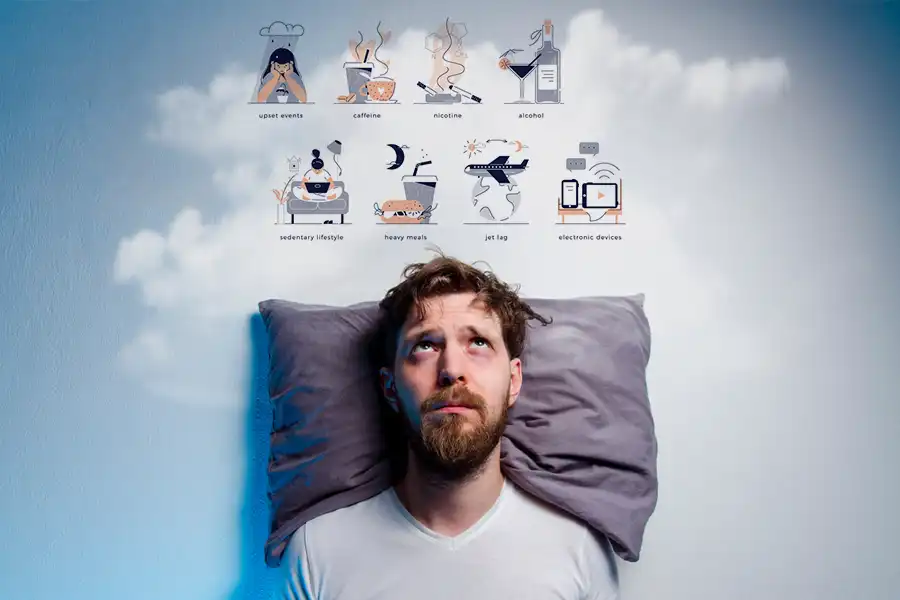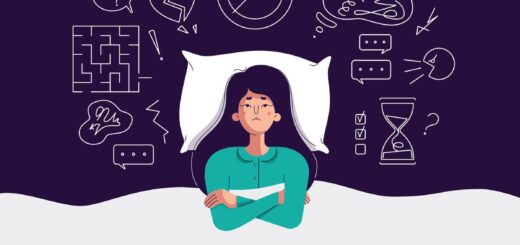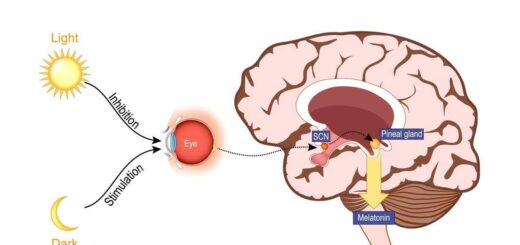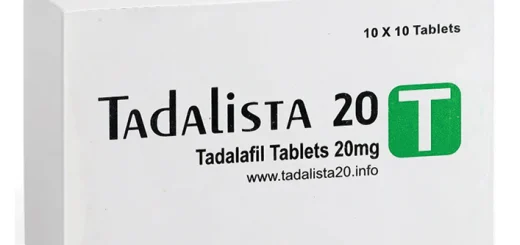8 Types Of Insomnia And Their Symptoms

Sleep is essential for an individual to lead a healthy, everyday life. So even with regular disturbances in the sleep-wake cycle, it is an issue; sleep disorders are common problems that might arise due to these improper sleep patterns. Types Of Insomnia is the most common example of this sleep disorder; it is the condition in which an individual finds it hard to fall asleep or remain asleep. Insomnia is a condition that prevents you from obtaining the necessary quantity and quality of sleep to function properly. It is a problem that lowers your energy and mood, as well as your health, work performance, and quality of life.
As a result, insomnia can impair daytime alertness and quality of life if not appropriately treated. It can significantly impact your capacity to think, remember, and react, as well as your health and illness risk.
Only some people with insomnia have the same problem; how much sleep is required varies from person to person, but most adults require eight hours of sleep per night. The etiology, related sleep disorders, and duration of different types of insomnia vary.
This article discusses the types of insomnia, their symptoms, and how to diagnose and treat them.
What is Insomnia?
Insomnia is the most prevalent sleep complaint; it is a condition in which it is difficult to initiate or sustain sleep. It is due to a lack of sleep or a bad quality of sleep; most of the time, you have probably experienced nights when you couldn’t fall asleep, no matter how weary you are. It is characterized by both sleep disruptions and daytime tiredness; the consequences of insomnia can affect practically every part of life. Many studies have revealed that insomnia can negatively affect work performance, impair decision-making, and damage relationships.
It may alter your mood and make it more difficult for you to manage other medical issues. In most cases, it can make your general quality of life worse. It can affect people differently; if you have it, you can have trouble falling or staying asleep. You might be unable to fall back asleep after waking up too early, possibly in the small hours of the morning.
Everyone has some nights of poor sleep; however, this does not imply that you have insomnia. In many cases, it suggests that you stayed up too late, woke up too early, or woke up mid-night. Stress is frequently to blame for a difficult night’s sleep. In women, insomnia symptoms are more prevalent than in men. Furthermore, people who work rotating shifts are more vulnerable to this illness.
You can meet with your doctor for advice and buy MODAFIL MD 200MG
Symptoms of Insomnia:
Insomnia symptoms can range in severity and may include:
- Trouble falling asleep at night;
- waking up often during the night and having trouble going back to sleep;
- waking up too early in the morning and being unable to go back to sleep;
- Feeling unrefreshed or tired upon waking up
- Daytime sleepiness or fatigue
- Irritability, mood swings, and anxiety-related problems
- Difficulty in concentrating or focusing on tasks
- Reduced performance at school and work due to sleep deprivation
- Increased accidents or errors due to impaired cognitive function
- Difficulty with memory and recall
It is critical to recognize that periodic bouts of sleeplessness are natural, especially during stressful or significant life events. If you have persistent sleep problems, seeking medical guidance to discover the underlying cause and receive appropriate therapy is best.
Types of Insomnia:
Types of insomnia can be classified into various subtypes depending on its duration and underlying causes. Regardless of which subtype you suffer from, realizing that a lack of rest can harm your physical and mental health is essential. The main types of insomnia are:
-
Acute insomnia:
This form of insomnia typically lasts between a few nights and a few weeks. Temporary stress or environmental changes are frequently to blame for this kind of insomnia. You must have noticed that sleeping in a hotel or at a friend’s home is difficult if you have experienced acute or mild insomnia. Stress, jet lag, a change in sleep schedule, or a transient illness are frequent triggers. After addressing the underlying cause, sleep typically returns to normal.
-
Chronic insomnia:
Chronic insomnia is often diagnosed when you have difficulty sleeping at least three times each week for more than a month. Stress, anxiety, depression, or another medical condition are just a few of the things that can cause it. Chronic insomnia requires more comprehensive treatment and management to improve sleep quality.
-
Comorbid insomnia:
This kind of insomnia may coexist with other physical and mental health issues. While some causes are simple, you might need to speak with a licensed expert to find long-term solutions to your insomnia. Anxiety disorders, depression, chronic pain, and neurological problems can exacerbate insomnia. Effective management of concomitant insomnia depends on treating the underlying illness.
-
Onset insomnia:
People with onset insomnia have trouble getting asleep but can stay asleep. The disease might be acute or chronic; the diagnosis does not consider how long you have been experiencing symptoms. Anxiety and depression, for example, are typical reasons for sleeplessness. In addition, insomnia is frequently associated with other sleep disorders.
-
Maintenance insomnia:
Maintenance insomnia is typically the other half of insomnia. With this type of insomnia, you may awaken throughout the night or earlier than you’d like. More often than not, maintenance insomnia is not directly related to a mental health condition or lifestyle choices; it frequently results from various physical issues that interfere with sleep. Asthma, acid reflux, and sleep apnea are common examples.
-
Psychophysiological Insomnia:
A lot of nervousness causes psychophysiological insomnia, or worry focused on the fact that the person can’t sleep. People with this kind of sleeplessness might find it helpful to sleep somewhere else. Psychophysiological insomnia may be treated with a mix of sedative-hypnotic and sedating antidepressants and behavioral therapy. Cognitive behavioral therapy (CBT-I) can be an effective treatment for insomnia.
-
Behavioral insomnia in childhood:
BIC is a sleep disease that affects many young children, usually between the ages of 6 months and 6 years. It means that you have trouble falling and staying asleep. Children with BIC may resist going to bed, experience bedtime struggles, or have frequent nighttime awakenings. These behaviors can lead to inadequate sleep and daytime sleepiness, affecting the child’s behavior and mood during waking hours.
-
Idiopathic Insomnia:
A rare and persistent sleep disorder called idiopathic insomnia typically first appears in childhood. The absence of an underlying cause and persistent difficulty falling or staying asleep are indicators.
Conclusion:
Regardless of the types of insomnia a loved one is experiencing, it’s critical to understand that the condition is more than just a nuisance—prolonged durations of not getting enough rest cause active injury to the brain and body. While you work with specialists to identify the underlying causes of your insomnia, you should also work with your sleep doctor to treat the symptoms. If you get enough sleep, your brain and body will be better equipped to deal with anything life throws at them
[WPSM_AC id=5315]






